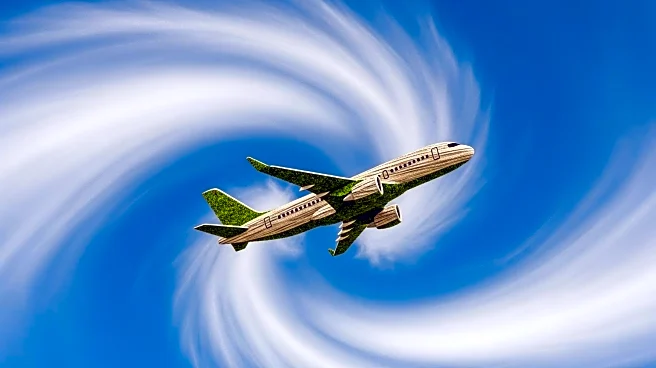What's Happening?
Icelandic budget airline PLAY was confronted with a substantial carbon emissions bill of over 1.6 billion ISK the day after it ceased operations. This financial obligation is tied to the EU-wide emissions trading system, which requires airlines to purchase carbon credits to offset their emissions. PLAY's last aircraft left Iceland with an unpaid debt of approximately ISK 500 million. The Environment Agency of Iceland reported that PLAY produced about 165,000 tonnes of CO2 in 2024, necessitating the purchase of carbon credits.
Why It's Important?
The situation highlights the financial challenges airlines face in meeting environmental regulations, particularly in the context of the EU's emissions trading system. The collapse of PLAY underscores the economic pressures on airlines to balance operational costs with environmental responsibilities. This case may prompt discussions on the sustainability of current emissions trading frameworks and their impact on the aviation industry, potentially influencing future policy adjustments to support struggling airlines while maintaining environmental standards.
What's Next?
The unpaid carbon bill and the airline's collapse may lead to legal and financial repercussions, affecting creditors and stakeholders. The situation could also spark debates on the effectiveness and fairness of emissions trading systems, especially for smaller airlines. Industry observers will likely monitor how this case influences regulatory approaches and the financial health of other airlines operating under similar constraints.









